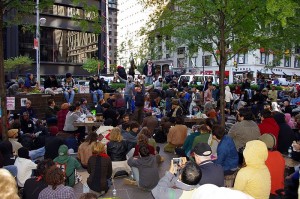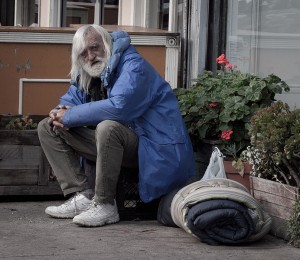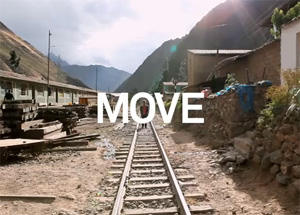
Even though I use Facebook frequently, I doubt my usage pattern will justify a $100 billion valuation for the company or send a new crop of Silicon Valley paper millionaires to Ferrari dealerships.
I never click on sidebar ads, I immediately block all games, and I have no intention of using Facebook's virtual money. I've done some advertising -- to little effect -- and will do more, but not much.
On the other hand, I find Facebook intriguing, sobering and oddly encouraging. To me, Facebook is an intriguing window on the world. It's the raw stuff of human diversity, not filtered through self-serving politicians or media summaries. When I decided to "friend" people whose views differ from mine, little did I know how much we differ.
Name an issue — say, the recent dust-up over breast cancer funding for Planned Parenthood — and I read not only the rage and indignation of fervent extremes, but deep divisions within the sensible middle. The hope that we could find common ground by moving to the middle could be delusional. Divisions are still there, but maybe they're just calmer.

An Open Invitation to Unfriend Me on Facebook, Stop Following Me on Twitter and Discontinue Reading My Blog if You Need To:
If you are a Christian who takes offense at swear words or believes for some reason that clergy should never be cranky or irritated, then I am not the person for you to follow. It’s ok. You don’t actually need me. The entire publishing arm of the Christian Industrial Complex (I believe my friend Shane Claiborne coined that term) has a great deal of material that is just for you!

I know that for people of all faiths prayer is an incredibly important part of life, not only for one’s own sense of connecting to God, but also in order to stay connected to the people around them. As social media gets further embedded in our everyday lives, this sense of who is “around” us is changing, offering an opportunity to expand our understanding and experience of community. Prayer has always been a means to cross-over bounds of geography, personal experience and other divisions in order to lift up a common hope that God’s love, hope, peace and joy will be made known and Social Media, when used well, can be a powerful means of further crossing those bounds.
(+Video may contain coarse language+)
Indie music darling, Jeff Mangum, who rarely plays in public, surprised #OccupyWallStreet protesters in New York City earlier this week with an impromptu concert. A New Jersey singer-songwriter pens two songs for revolutions. And an order of Catholic nuns offer free mp3 downloads of a protest song inspired by the life of St. Francis of Assisi.
We've compiled a list of links where you can learn more about the genesis of the #OccupyWallStreet movement, including links to news reports, organizations involved in formenting the movement and local groups in every state where you can get involved close to home (if you don't live in Lower Manhattan.)
The Gubbio Project, which helps churches become refuges for homeless people throughout the U.S., recently earned a new fan: Author Anne Rice. "When I was in San Francisco, I visited St. Boniface Church in the Tenderloin and was moved by the sight of many peaceful homeless people sleeping in the pews of the church," Rice wrote on her Facebook.com page earlier this month. The author of the Vampire Lestat books and most recently the biblically-themed Christ the Lord novels and her spiritual memoir, Called Out of Darkness, provided her "people of the page" as she calls them, a link to the Gubbio Project where they could donate to "this fine work on the part of the Franciscans of St. Boniface in helping the homeless."
As the tenth anniversary of 9/11 approaches, many of us are wondering how best to honor the many victims of that tragedy and its aftermath.
Here in Cincinnati, my wife Marty's answer is inviting some of our friends to join us on a walk with some Muslim and Jewish families she invited by simply calling their congregations. She got the idea from my friends and me at Abraham's Path, who are sponsoring www.911walks.org to help people find or pull together their own 9/11 Walks all over the USA and around the world. The goal of these walks is simple: to help people honor all the victims of 9/11 by walking and talking kindly with neighbors and strangers, in celebration of our common humanity and in defiance of fear, misunderstanding, and hatred.
The avalanche of information available via the Internet is both a blessing and a curse. Used judiciously, it is an invaluable tool for research -- making what used to take hours in a library now just a few clicks away. Any piece of information, no matter how obscure, is at our fingertips.
The proliferation of blogs and listservs mean an amount of information that is simply impossible to keep up with. We have news summaries several times a day and instant breaking news headlines as they happen. And then there is the rise of a new social media. Facebook has enabled us to connect with friends and family, so we know immediately the latest cute thing their toddler did, what they're cooking for dinner, and the most recent book they read. On Twitter, we share thoughts and activities in 140-word tweets.
All of this means we know more than ever, but never have time to think about it. Neal Gabler, a senior fellow at the Annenberg Norman Lear Center at the University of Southern California, lamented in a piece in The New York Times Sunday Review:
In his seminal 1974 book Models of the Church, theologian Avery Dulles offered five paradigms, or "models," each of which called attention to certain aspects of the worldwide Christian church. The church, Dulles wrote, is in essence a mystery -- a reality of which we cannot speak directly. Thus we must draw on analogies to understand the church in deeper ways.
Dulles developed five models, drawing on a range of theological schools and traditions, both Protestant and Catholic, to illuminate different aspects of the church. His models included church as institution, mystical communion, sacrament, herald, and servant. Dulles was careful to point out that no single model, by itself, adequately paints a complete picture of the church; each contains important insights about the nature of the church.
"God is Watching," reads the headline for a full page ad Sojourners ran in this morning's Politico. It is the latest in a series of radio, print, and online ads we have put out on the budget debate and default crisis. On Tuesday, we launched radio ads in Kentucky, Nevada, and Ohio that were recorded by local pastors who lifted up the moral issues at stake in the debate.
Furthermore, our work in the past few weeks and the Circle of Protection meeting with the president has been covered by the Washington Post (and here), CNN (and here), MSNBC, Politico, Roll Call, and many local outlets from across the country. Behind all the ads and the press is the muscle -- and that muscle is you.
 Here's a little round up of links from around the Web you may have missed this week:
Here's a little round up of links from around the Web you may have missed this week:
- Our prayers extend to the people of Norway. Lord, have mercy.
- Why voter ID laws will disenfranchise women. (HT: Kristof)
- The New York Times said it best. Today's weather "felt more like being licked by a big, swampy monster."
- Who wrote what? Rep. West vs. Jane Austen.
- These awesome folks turned Carmageddon into a dinner party.
 Today, I, alongside other faith leaders, met with President Obama about the critical budget debate. We are grateful and hopeful leaving this meeting. Please pray for us as the conversation continues.
Today, I, alongside other faith leaders, met with President Obama about the critical budget debate. We are grateful and hopeful leaving this meeting. Please pray for us as the conversation continues.
Since early this spring, Sojourners, with your invaluable help, has strongly advocated with the president and Congress, asking for a responsible plan to reduce our nation's deficit -- a plan that protects the poorest and most vulnerable. We have asked, "What Would Jesus Cut?" We have prayed and fasted, and now thousands of you have signed on to the Circle of Protection: a statement on why we need to protect programs for the poor.

"The mental space [books] occupied is being eroded by the thousand Weapons of Mass Distraction that surround us all," Hari told me last week. "It's hard to admit, but we all sense it: it is becoming almost physically harder to read books."
[Okay, I admit I didn't actually talk with Hari. The quote is from his newspaper column. But pop over to Twitter, and you can see how, in effect, he gave me permission to paraquote him at #interviewbyhari.]
Anyway, where was I? Oh, yeah, long-form reading. Hari quotes David Ulin, author of The Lost Art of Reading: Why Books Matter in a Distracted Time, who wrote that he "became aware, in an apartment full of books, that I could no longer find within myself the quiet necessary to read." Ulin wrote that he would sit down with a book, and find his mind wandering, enticing him to check his email, or Twitter, or Facebook. "What I'm struggling with," he writes, "is the encroachment of the buzz, the sense that there's something out there that merits my attention."

But one thing has not changed even a little bit is the human condition. Parts of the Bible can feel hard to relate to until you get to a thing like this reading from Romans 7, in which Paul says, "I do not understand my own actions. For I do not do what I want, but I do the very thing I hate. I can will what is right, but I cannot do it. For I do not do the good I want, but the evil I do not want is what I do."
Finally. Something I can relate to. This I know about. I too do not understand my own actions. I too can't manage to consistently do what I know is right. Paul's simple description of the human condition is perhaps a most elegantly put definition of what we now call addiction.
It's no secret that I am a recovering alcoholic. By the grace of God I have been clean and sober for more than 19 years. But, boy, do I remember that feeling of powerlessness that comes from not being able to control your drinking. I'd wake up each morning and have a little talk with myself: "OK Nadia, get it together. Today is going to be different. You just need a little will power." Then, inevitably, later that day I'd say, "Well, just one drink would be OK," or, "I'll only drink wine and not vodka," or, "I'll drink a glass of water between drinks so that I won't get drunk." And sometimes it worked, but mostly it didn't. In the end, my will was just never "strong enough" Like Paul, I did the thing I hated. But that's addiction for you. It's ugly. Yet on some level I feel like we recovering alcoholics and drug addicts have it easy. I mean, our addictions are so obvious. The emotional, spiritual, and physical wreckage caused by alcoholism and drug addiction has a certain conspicuousness to it.

- How do you like your chocolate chip cookies? (Personally, I prefer thick, chewy, and not too sweet.)
- Are you a stay-at-home dad?
- Learn more about new media and faith.
- Religious groups are part of the suit against Alabama immigration law (hat tip: CCIR).
- The changing face of AIDS.
I couldn't bear to watch any of the coverage of the Casey Anthony murder trial. I heard snippets of information on occasion: intimations of incest; a car that "smelled of death"; fist fights breaking out as the curious and obsessed (or the profoundly bored?) tried to get a seat in the Florida courtroom.


